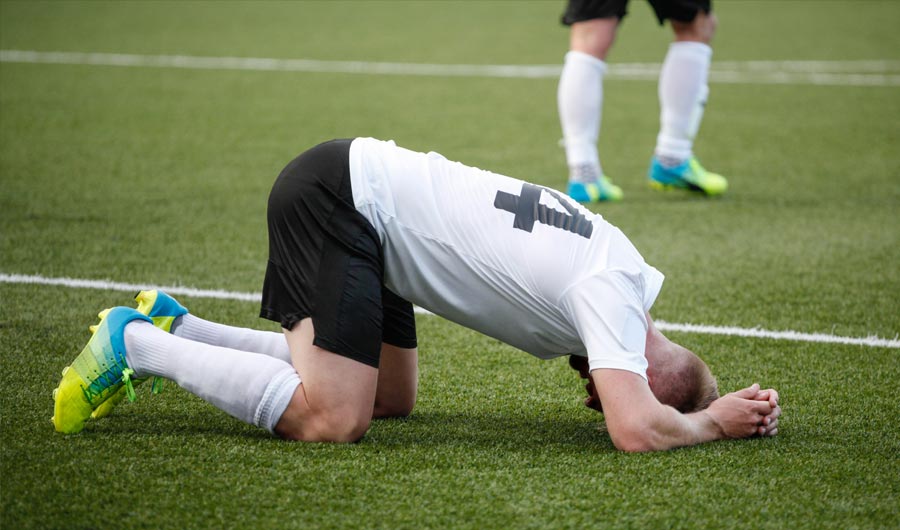World Cup Showcases Elite Players’ Fight Against Fatigue

Image credits: Michael715 via Shutterstock
(Inside Science) -- Players in the World Cup don't lack for motivation. But fatigue can compromise the body's willingness or ability to compete, especially now that the tournament has reached the semifinals. The remaining teams may be tired going into these final rounds, having already played five times since the World Cup began about three weeks ago.
"There's no question there's an endurance component to this, and a huge one at that," said Shawn Arent, an exercise scientist at Rutgers University in New Brunswick, New Jersey. "There's a tremendous workload in that 90-minute match. And then even more, obviously, if you go into added time."
It can be difficult to define exactly how much fatigue can and does diminish performance on a game-by-game or play-by-play level. Research recently published in the International Journal of Sport and Exercise Psychology explored a few aspects of the problem by looking at what happened to top sprinting speed and decision-making when players were tired.
A group of researchers including human movement scientist Jeroen Barte from Radboud University in Nijmegen, Netherlands, tested how well 30 accomplished amateur soccer players could intercept passes during a drill. They tested both tired and fresh players on their ability to intercept a ball released at different speeds from a device called a ballshooter. They also asked the players to report their level of motivation to intercept the ball, and they measured their top sprinting speed.
In the experiment, fatigue didn't have a large effect on the rate of success for interception attempts, nor did it reduce the players' top sprinting speed.
The researchers did, however, observe changes in motivation to intercept passes. But that waning motivation didn't seem to affect how often the players attempted to intercept passes -- essentially, it left their decision-making unchanged, Barte said. This differed somewhat from what Barte found in a separate study of pro and semipro players from the four top divisions in the Netherlands. In that study, fatigued players tended to conserve their energy for the primary tasks associated with their respective positions. For example, in the second experiment, fatigued defenders were likely to work harder at defending tasks as compared to attacking.
More stories from Inside Science on the World Cup:
Soccer Referees Have Back-up in This Summer’s World Cup
New 2018 World Cup Ball Passes Wind Tunnel Tests
Video: Soccer Bots
These contrasting findings highlight the complexity of measuring fatigue, especially if one is trying to draw conclusions about the world's top players from experiments done in situations less high-pressure than a World Cup knockout stage match.
"It's hard to replicate that competitive aspect and the decision-making process that has to occur depending on the situation of the game," said Arent. "In some studies that we've done we've seen better effort from our non-high-level players, only because the high-level players are like, 'I don't want to do this; I don't have to do this.'"
Arent also said he has unpublished data and has seen related results from others suggesting that players' average speeds and distance covered both drop in the second half.
Equating such stats to performance can be difficult though, especially because of the complicated relationship between performance and fatigue. The brain sometimes sends signals to the body that tell it to reduce energy output, even though there may be more performance capacity in reserve, Barte said.
When they reach that stage, he said, "it's more that players are not willing anymore to continue their performance than they're not capable anymore of performing when they're fatigued."
One crucial related issue, said Arent, is getting prepared mentally and physically before the second half begins to avoid any physical or mental lapses in the first few minutes after half time. "That re-warmup appears to be pretty important to make sure they're ready to get after it in the second half and not lose a step in those first five [minutes]."
The struggle between a player's fatigue and the will to compete can come into sharp focus at the very end of matches in the elimination rounds -- when games tied after the initial 90 minutes and the 30 minutes of extra time are sent to penalty kicks. With the hopes of the team and its fans on a player's shoulders, motivation is likely to be sky-high, said Arent. But after two hours of play, even that call to action may not be enough to counteract a player's fatigue.

